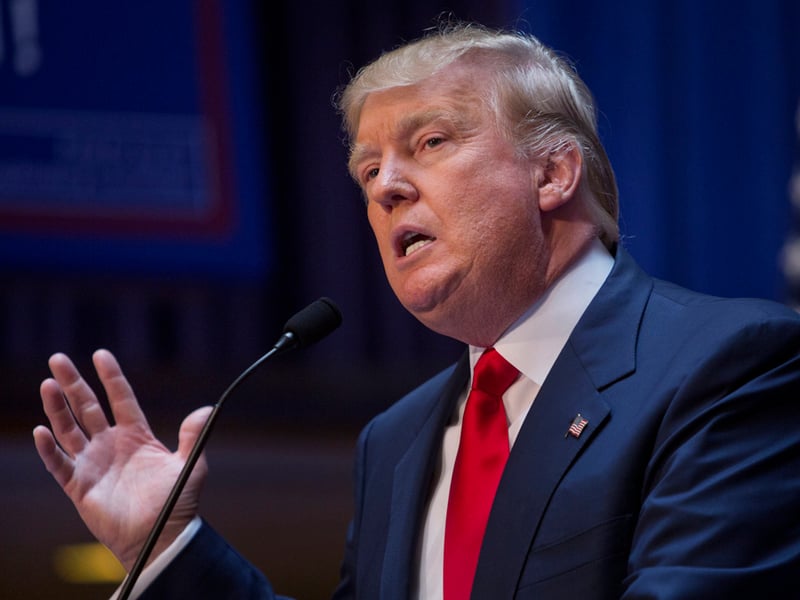History teaches us that politically extreme views can spook investors and trigger uncertainty in financial markets.
Having sparked worldwide controversy by announcing he wants to ban Muslims entering the United States, Donald Trump could become a major cause of volatility in financial markets throughout the first half of 2016.
Speaking after the recent mass shooting in San Bernardino, Calif., the Republican presidential candidate called for a “total and complete shutdown” of Muslims entering America.
Clearly, Mr. Trump's comments are important as he is, currently, the front-runner in the race to be the GOP candidate and, therefore, come January 2017, he could be sitting in the Oval Office as the chief executive of the world's largest economy.
His latest outburst highlights American historical exceptionalism in a manner that favors people like himself, something that's widespread across Europe at the moment. We see it in the Front Nationale in France, Syriza in Greece (populism doesn't always come from the right wing of politics), and in Britain from the Scottish National Party and the politicians leading the campaign to take the UK out of the EU.
EMPHASIZING DIFFERENCES
In contrast to Ronald Reagan, perhaps the last truly populist U.S. president, Mr. Trump is not willing to charm anyone but those who look and sound as he does. His gut reaction is to emphasize differences between people and to build walls, in contrast to Reagan whose call to the Soviet Union to "tear down that wall" helped to end the Cold War.
Since uttering his highly polemical comments, Mr. Trump has been touring TV studios and appears to be unmoved by the storm of criticism and outrage — in fact, he seems to be thriving on it. Indeed, he told a cheering crowd “I. Don't. Care.”
This suggests we could expect more of this kind of rhetoric from the billionaire would-be president between now and July, when the candidate is announced.
And this should hoist red flags because these are generally bad news for economies and investors, since they tend to favor protectionist economic policies.
History teaches us that politically extreme views which have dominance and a spotlight, as Mr. Trump's do, can spook investors and trigger uncertainty in financial markets. This is especially true if it takes place in globally significant economies.
MAJOR CAUSE OF VOLATILITY
As such, Mr. Trump could be a major cause of volatility in financial markets throughout the first half of 2016. With investors already in a skittish mood ahead of rising U.S. interest rates, and fears that Wall Street is overvalued, many will not want to stay in American stocks long enough to find out what a President Trump will look like in terms of policies.
On the international stage, the new president will have to deal with tensions arising from China asserting its power on the global stage, Russian involvement in its neighbors' affairs, the various Middle East conflicts, and trying to push through trade agreements between the U.S. and the Pacific, and the U.S. and the EU.
The U.S., and indeed the world, looks to the U.S. president for strong leadership. This means clear goals, a consistency in implementing policies, and a willingness to build a consensus among allies and trading partners.
Mr. Trump appears unwilling to act in this manner, and therefore he risks America becoming isolated from its allies and the western world losing a vital pillar of support as geopolitics become increasingly tense.
Most investors already expect 2016 to be an unsettling time for the markets and have assessed and rebalanced their portfolios to take advantage of the potential opportunities and to mitigate the risks.
But an increasingly outspoken and extreme Donald Trump is making the outlook for at least the first six months of next year more opaque.
Nigel Green is founder and CEO of deVere Group.







